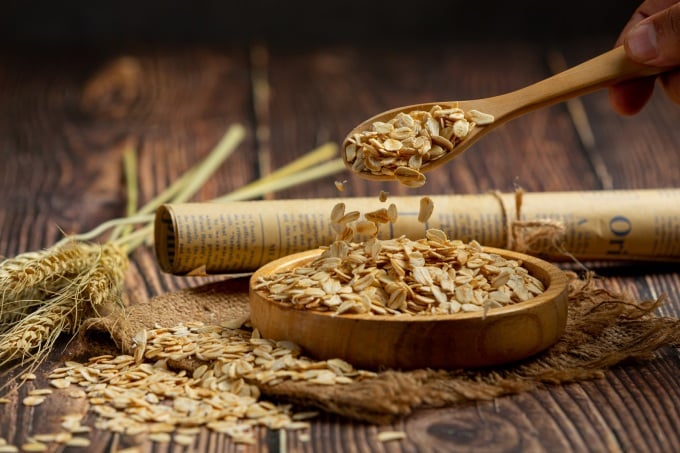Regular consumption of oats, barley, and whole wheat may reduce the risk of diabetes.
According to the American Diabetes Association, high blood sugar in people with diabetes increases the risk of complications such as heart disease, neuropathy, stroke, and kidney damage. In addition, high blood sugar is the cause of eye, skin, and dental diseases... In recent years, several large studies have found that eating a lot of whole grains can reduce the risk of developing diabetes and prevent complications.
A 2018 study by Chalmers University of Technology (Sweden), with more than 55,000 people without diabetes, showed that increasing the intake of whole wheat, oats and rye reduced the risk of type 2 diabetes.
Participants were divided into four groups based on their daily intake of whole grains. The two lowest groups consumed less than 27g of whole grains per day, and the two highest groups consumed less than 50g per day. Over a 15-year period, men and women in the highest group had a 34% and 22% higher risk of developing diabetes, respectively, compared with the lowest group.
Dr. Rikard Landberg, Chalmers University of Technology, who was part of the research team, said that fiber from whole grains has a positive effect on inflammation and body fat. This nutrient is a good source of energy for the gut microbiome. A healthy microbiome strengthens the body's immunity, reducing the risk of disease.

Oats are rich in fiber, helping to reduce the risk of diabetes. Photo: Freepik
According to a 2015 study by Wageningen University (Netherlands), on more than 26,000 people, a diet rich in fiber (including whole grains, vegetables, fruits) also reduces body weight. Losing weight and maintaining a healthy weight helps prevent this disease.
Dr. Minisha Sood, of Lenox Hill Hospital (USA), not part of the research team, said that people with diabetes should not eat refined flours such as all-purpose flour, often used in white bread, bagels and other baked goods. Carbohydrate metabolism is a factor in the development of type 2 diabetes. Refined flour has a high glycemic index, meaning it is digested, metabolized and absorbed more quickly, causing blood sugar levels to spike.
Meanwhile, whole grains are rich in fiber and complex carbohydrates, which are not digested as quickly as refined grains, so they do not increase blood sugar. Patients need to combine whole grains with vegetables, fruits, lean proteins, vegetable proteins and healthy fats to ensure nutrition and control the disease.
In addition to the three types in the above study, patients can choose other types including brown rice, millet, gluten-free quinoa, buckwheat, wheat groats... Replacing them with white rice, white bread, and wheat flour helps manage the disease better.
Beans and nuts are also rich in fiber and reduce the risk of diabetes. Consuming at least 35 grams of fiber per day from a variety of sources can prevent type 2 diabetes.
Mai Cat (According to Everyday Health )
| Readers ask questions about endocrine diseases - diabetes here for doctors to answer |
Source link



![[Photo] Binh Trieu 1 Bridge has been completed, raised by 1.1m, and will open to traffic at the end of November.](https://vphoto.vietnam.vn/thumb/1200x675/vietnam/resource/IMAGE/2025/10/2/a6549e2a3b5848a1ba76a1ded6141fae)



































































































Comment (0)